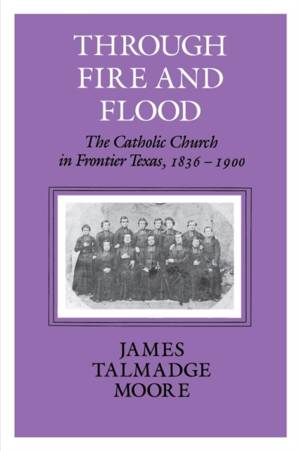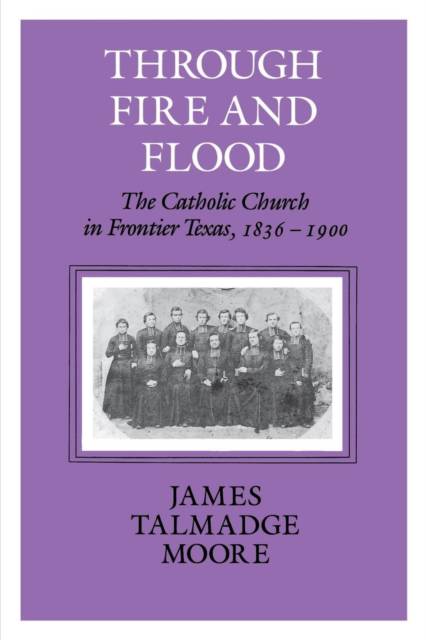
- Retrait gratuit dans votre magasin Club
- 7.000.000 titres dans notre catalogue
- Payer en toute sécurité
- Toujours un magasin près de chez vous
- Retrait gratuit dans votre magasin Club
- 7.000.000 titres dans notre catalogue
- Payer en toute sécurité
- Toujours un magasin près de chez vous
Through Fire and Flood
The Catholic Church in Fronntier Texas, 1836-1900
James Talmadge Moore
Livre broché | Anglais | Centennial Series of the Association of Former Students Texas A & M University (Paperback) | n° 42
24,45 €
+ 48 points
Description
The political and military upheaval of 1836 in Texas left Catholics north of the Nueces River cut off from the ordinary ties binding them to the institutions of the church and ushered in an era of reorganization, evangelization, and change unprecedented in the North American Catholic church. James Talmadge Moore engagingly chronicles the history of the Catholic church in Texas from the point at which Carlos E. Castañeda ended his celebrated account up to the present century. Moore deftly integrates local and regional events after the Texas Revolution into the larger social and political history of the young nation and state and shows their relationship to ecclesiastical and philosophical movements in the United States and abroad. He traces the contributions of various religious orders--as missionaries and in establishing schools and hospitals--and shows the evolving institutional complexity of the church as the number of Catholics in Texas grew. Moreover, he shows the character of the people who did the work of the church--many different kinds of people, some courageous and compassionate, others less admirable. All, he concludes, were united in "their effort to live their faith in an unquiet age, an age filled with the incessant motion of unprecedented political and demographic change." With full access to the Catholic Archives of Texas as well as other archival and primary sources and supplementing these amply with secondary literature, Moore has given a full and extremely readable account of the various facets of this important part of the state's religious and socio-political life. Scholars of religious history, Western and Southwestern studies, and Texas history will find it a solid corpus of information, while those with more general interests will enjoy the lively description of the church, the times, and the people who made them what they were in Texas.
Spécifications
Parties prenantes
- Auteur(s) :
- Editeur:
Contenu
- Nombre de pages :
- 304
- Langue:
- Anglais
- Collection :
- Tome:
- n° 42
Caractéristiques
- EAN:
- 9781585440764
- Date de parution :
- 01-06-00
- Format:
- Livre broché
- Format numérique:
- Trade paperback (VS)
- Dimensions :
- 154 mm x 230 mm
- Poids :
- 498 g







